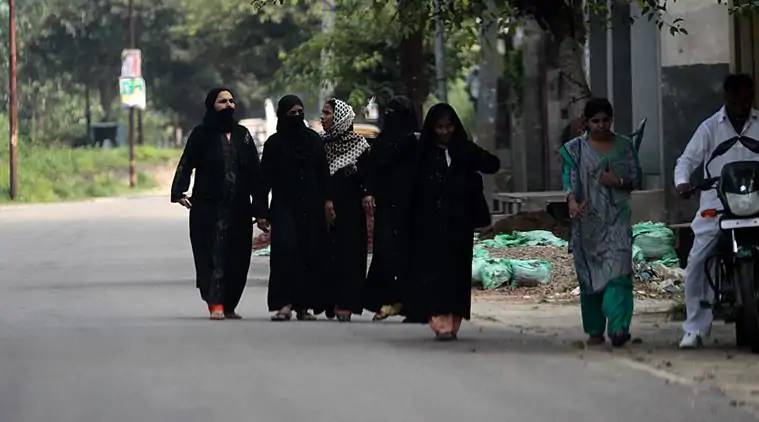
IN ITS April 17 directive asking managements of all its colleges to ensure that girl students don’t wear veils covering their faces, the Muslim Educational Society (MES), one of the largest such groups in the country with over 150 institutions, had cited a Kerala High Court order.
The two girls whose case was the basis of that order have not been going to school for a year.
The father of the two minors, Mohammed Sunir, had gone to court after their Christ Nagar Senior Secondary School, located at Thiruvallam near Thiruvananthapuram, had said they couldn’t wear long sleeves starting academic year 2018-19. Deeming short sleeves un-Islamic, Sunir had moved court. In December 2018, in a single bench order, Judge A Muhamed Mustaque ruled that a petitioner cannot seek imposition of individual rights over the larger interest of an institution, and that it was within the domain of an institution to decide a dress code.
Sunir, who did not send his daughters, who were then in Classes 7 and 3, to school during the last academic year, has appealed against the single-bench high court order. “I will take the fight to the apex court,” says the 40-year-old.
He has another daughter studying in kindergarten of the same school. The children in these classes have a frock and shirt as uniform, while elder girl students have to wear a shirt and pinafore, and boys trousers and shirt.
A trader, Sunir says, “It (the order) is against a child’s right to wear a decent dress covering her body. Why can’t a student go to school covered? When a person wants it, can anyone deny that right? I am fighting for the rights envisaged for an ordinary citizen in the Constitution. I am not demanding that the face of the students be covered, only demanding full sleeves.”
Christ Nagar Senior Secondary School is run by the Catholic body Carmelites of Mary Immaculate. It has 5,000-odd students from kindergarten to Class 12. Of them, 800-odd are Muslims.
Principal Fr Mathew Chakkalakkal says, “When the two students came wearing long sleeves in 2017-18, we insisted they stick to the school uniform. That academic year, we allowed them to wear full sleeves, but wanted to stick to the dress code in the next academic year, 2018-19. But the parent is not ready to follow the dress code and the students didn’t attend classes in the last academic year.”
Denying that there was any change in school policy regarding sleeves, since it began 20 years ago, the principal adds, “This particular parent complained to the highest authorities in the state government, but everyone stood with us… We can’t run an educational institution from religious angle.”
The school’s Parents Teachers Association (PTA) President, K S Renjulal, says they had tried convincing Sunir to change his mind. “But he remained adamant… One or two students can’t be allowed to violate the school dress code.”
Advocate Hasshir Labba, who is a member of the PTA executive, says Sunir was wrong in denying his children a good education on these grounds. “If full sleeves are allowed for Muslim girls, tomorrow someone would come demanding the right to wear dhoti and tilak on their forehead,” he says.
In his order, Judge Mustaque had held that the right of a woman to dress as per her religious injunctions was a fundamental right protected under Article 25 (1) of the Constitution if such prescribed dress was an essential part of religion. However, the court said, the right to establish, manage and administer an institution was equally a fundamental right, under Article 19, subject to “reasonable restrictions”.
Not resolved through legislation, these two competing rights, the judge held, were a matter of judicial adjudication. “The court has to balance those rights to uphold the interest of the dominant rather than the subservient interest. If dominant interest is not allowed to prevail, subservient interest would march over the dominant interest, resulting in chaos. In this case, management is the dominant interest and if the dominant interest is not given free hand to run the institution, that would denude their fundamental rights. The Constitution intends to assimilate those plural interests within its scheme without any conflict or in priority.”
Sunir admits his daughters, who receive religious education at home, are missing the school and their classmates. “They want to study at the same school. But I want them to go in full sleeves.”